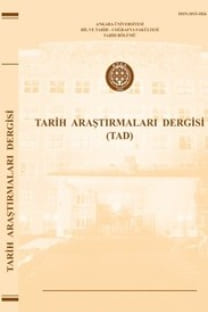Hocalı Soykırımının tanınması için İslam İşbirliği Teşkilatının aldığı önlemler
Soykırım, Hocalı, Azerbaycan, Uluslararası örgütler, İİT
The events of Organization Islamic Cooperation about the recognition of Khojaly genocide
Genocide, Khojaly, Azerbaijan, İnternational Organization, OIC,
___
- “Dirchalish”, February-March, 2005, № 84-85, p. 50-58.
- 11th session of the Islamic Summit Conference // http://www.oicoci.org/is11/english/documents.asp 12th session of the Islamic Summit Conference // http://www.oicoci.org/external_web/is/12/en/docs/final/is12_fc_rev2_en.pdf
- Boran Aziz, Khojaly genocide: causes, the methools, of implentation and results.
- Baku, Azərneshr, 2008. - 224 p.
- Cairo Declaration Fifth Session of the Conference of the Parliamentary Union of the OIC Member States (PUIC) Cairo – Arab Republic of Egypt 30-31 January 2008 // http://www.puic.org
- Final Documents adopted by the 7th sesion of the PUIC // http://www.puic.org Final Documents adopted by the Sixth Session of the PUIC Conference // http://www.puic.org
- Haydar Aliyevand the East. In 6 volume. 5th volume: OIC countries/ collecter. – Lecturer Q.Allahverdiyev, V.Sultanzadeh; editor M.Qurbanli. Baku; Chashioglu, 2005. - 357 pages
- Islamic Conference Youth Forum for Dialogue and Cooperation (ICYF-DC) // http://www.icyf-dc.org/en
- Justice for Khojaly // http://justiceforkhojaly.org/site/mainpage.php
- Quliyeva Saida, “H.A.Aliyev’s role the formation of the position of Orqanization of Islamic Conference to the expansionist policy of Armenia aganist Azerbaijan
- (191-2003”. Diplomacy world. The journal of the Ministry of Foregn Affairs of Azerbaijan Republic. Baku, 27/2010, p.31-39; http://www.mfa.gov.az
- Parliamentary Union of the Organization of the Islamic Conference // http://www.puic.org
- Resolutions of the 35th session of the council of Foreign Ministers// http://www.oicoci.org/35cfm/english/documents.html
- Resolutions on Cultural and Social Affairs Adopted by the 39-th session of the Council of Foreign Ministers (Session of Solidarity for Sustainable
- Development) Djibouti, Republic of Djibouti. 15 – 17 november 2012 (01 – 03 muharram, 1434) // http://www.oic-oci.org/english/conf/fm/39/CUL-RES-39- CFM-FINAL.pdf
- The Archive of the Parliament of Azerbaijan Republic. Fondation 2941. Survey 1, Work 19. – 167 s.
- The Archive of the Parliament of Azerbaijan Republic. Fondation 2941. Survey 1, Work 313. – 218 s.
- The National Assembly of Azerbaijan and Parliamentary union of the OIC member states. International cooperation. // http://www.meclis.gov.az/?/az/content/54
- The OIC PU has adopted the resolution supporting the “Justice for Khojaly” campaign. // http://www.lent.az/news.php?id=38171
- The Parliament of Azerbaijan Republic // http://www.meclis.gov.az
- The PUIC Conference Members have met at the following dates and places // http://www.puic.org
- Thirty Fourth session of the Islamic Conference of Foreign Ministers // http://www.oic-oci.org/34icfm/english/documents.htm
- ISSN: 1015-1826
- Yayın Aralığı: Yılda 2 Sayı
- Başlangıç: 1963
- Yayıncı: Levent KAYAPINAR
Arkhaik öncesi Grek devlet yapısını şekillendiren politik gruplar
Çanakkale’de batan gemilerin enkazının çıkarılması ve satılması
Kült görevlisi şarkıcı kadınlar:MUNUS(.MEŠ)katra-, MUNUS(.MEŠ)hazgara-
Balkan Savaşlarından Milli Mücadeleye Hilâl-i Ahmer Cemiyeti’nin yardım faaliyetleri (1912-1922)
Çivi yazılı kanun metinlerinde ilginç bir suç tespit ve cezalandırma yöntemi: suya atılma
H.hande DUYMUŞ FLORIOTI, Gözde DEMİRCİ
Teknolojik gelişmeler ışığında Osmanlı-Amerikan silah ticaretinin ilk dönemi
İtalyan Donanması’nın Çanakkale Boğazı Saldırısı’nda bir kahraman: Topçu Onbaşı Yusuf (Erdil)
İtalyan donanması'nın Çanakkale boğazı saldırısı'nda bir kahraman: Topçu Onbaşı Yusuf (Erdil)
Kült görevlisi şarkıcı kadınlar: munus(.me )katra-, munus(.me ) hazgara-
